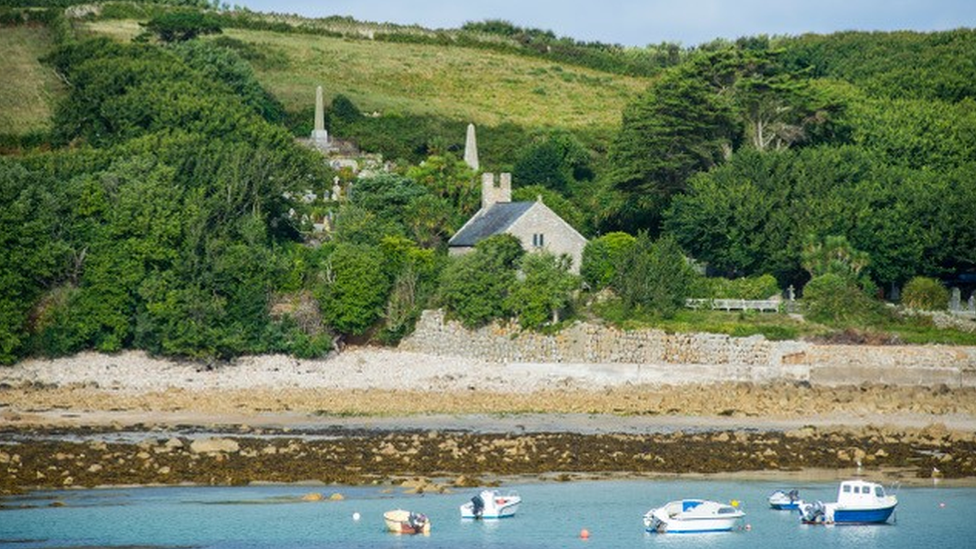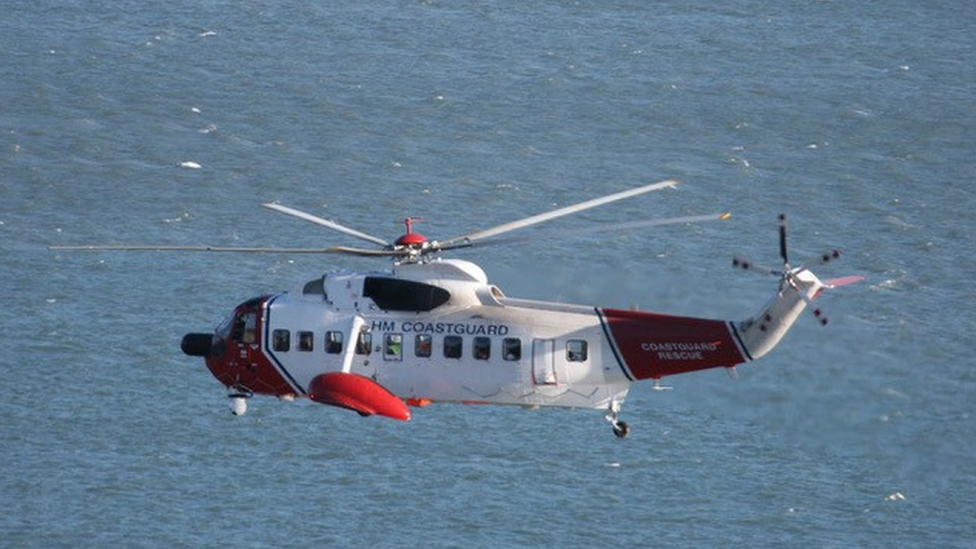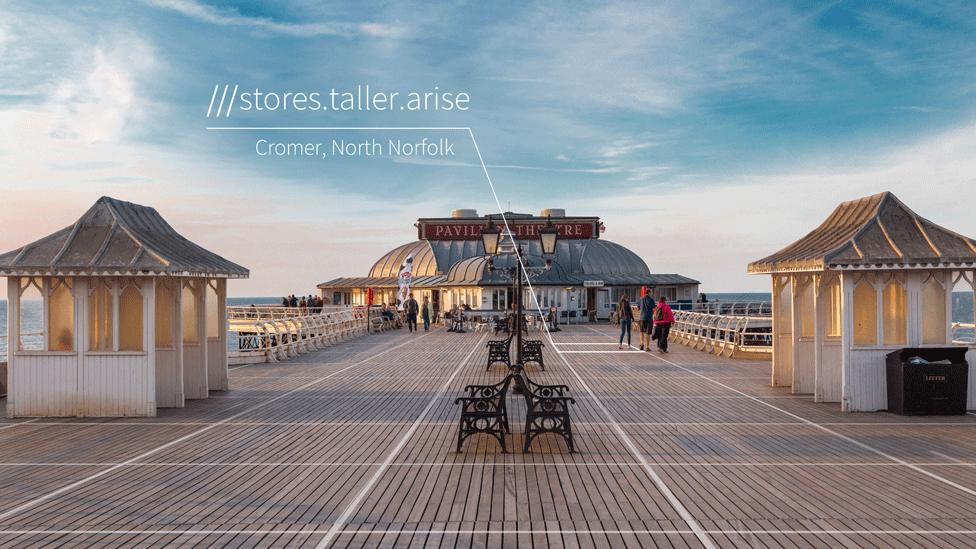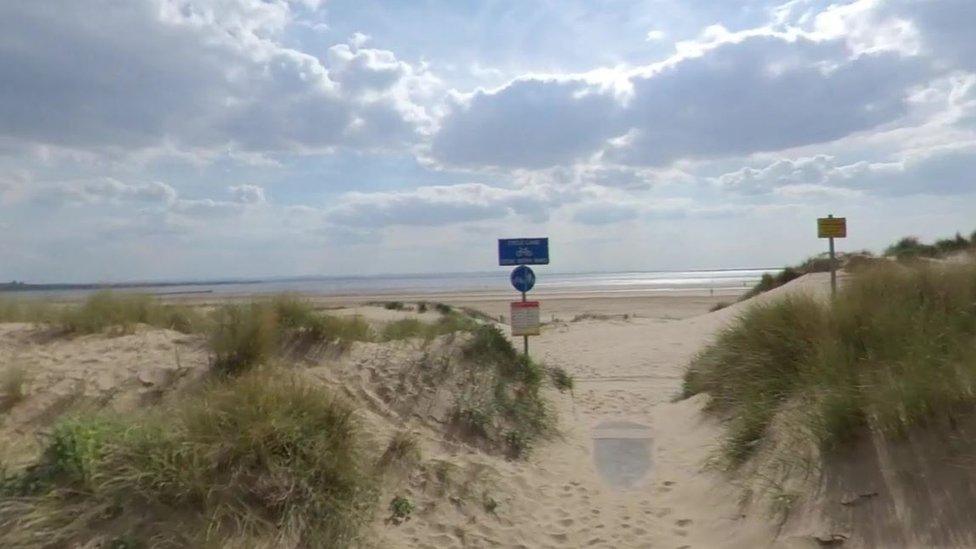Stinky Bay? Local names added to map to aid coastal rescue
- Published

Locals often know beaches by names that are not on official maps
Ordnance Survey is releasing a mapping tool which assigns local nicknames to coastal areas to make it easier to find people in need of help.
Stinky Bay, Crazy Mary's Hole and Nuncle Dicks may be familiar names to those who live nearby, but they would rarely appear on any map.
Now these alternative names will be overlaid on the official names on the OS map to help speed up response times.
The system may eventually be used by other emergency services.
Ordnance Survey, the official national mapping agency of Great Britain, first trialled the new nicknames on the south coast, but will now launch it nationally.

When the coastguard is called, time is often of the essence
Ideally those in need of rescue should submit co-ordinates to make it easy for emergency services to locate them, but because not everyone has access to a device or a map, that is not always possible.
The development of the vernacular geography tool known as FINTAN was driven by the Maritime Coastguard Agency (MCA), as its operators were increasingly finding that people referred to local landmarks with nicknames or names which had been adopted by fishermen.
The locally-named beaches, rocks and other landmarks did not correspond to names on official maps, which made identifying their location difficult when time is often critical.
Around 7,500 coastal place names will initially be included on the mapping tool.
Chris Chambers, head of OS National Mapping Services, said the goal was to make the service accessible.
"It's not just coastal areas that have alternative names. Across the country people refer to many other locations with nicknames, from buildings to parks and roundabouts to road junctions," he said.
Chief coastguard Pete Mizen added: "A great deal of hard work has gone into the creation of the FINTAN database, which delivers so much local knowledge, and there is no doubt that having this extra information at our fingertips cuts down our response times and saves lives."
In 2020, the MCA was called to more than 33,000 incidents around the coast of Britain.
Related topics
- Published29 April 2021

- Published21 July 2021
